Table of content
- What Is a Blood Glucose Meter (BGM)?
- Why Accuracy Matters in Diabetes Management Devices
- Blood Glucose Meters vs Continuous Glucose Monitors (CGM)
- Features to Consider Before Choosing the Best Glucose Meter
- Best Diabetic Glucose Monitor Brands in 2026
- Insurance and Cost Considerations
- Comparison Table for Choosing the Best Glucose Meter
- Final Verdict: Which Continuous Glucose Monitor is Best
- Conclusion
- Frequently Asked Questions
When you select the best diabetes blood glucose meters, it can feel overwhelming. If you have diabetes mellitus of type 1 or 2. It is important to check your blood sugar regularly without any excuses because it’s the key to safe and effective care. With so many brands offering different accuracy claims and differences in insurance coverage, you may struggle to choose the best device that balances cost, usability, and accuracy.
That’s why this guide is purely prepared for you. We’ll explain the difference between a blood glucose meter (BGM) and a continuous glucose monitor (CGM), compare leading devices from Accu-Chek, OneTouch, FreeStyle, and Contour, and highlight features such as Bluetooth connectivity, no coding meters, test strip coverage, and insurance benefits.
What Is a Blood Glucose Meter (BGM)?
The blood glucose meter is simply called a glucometer. It is a small portable device that measures the range of high or low blood glucose. You prick your finger with a lancet (a fine needle with no expiry), apply a drop of blood on a glucometer test strip, and view the result on the meter within seconds.
This quick method, called self-monitoring of blood glucose (SMBG), is important for:
- Type 1 diabetes patients using insulin
- Type 2 diabetes patients adjusting oral agents or insulin
- Gestational diabetes management during pregnancy
Unlike HbA1c laboratory testing, blood glucose meters (BGMs) support self-monitoring of blood glucose (SMBG) by providing real-time results for daily diabetes management, including insulin dosing, dietary adjustments, and hypoglycemia detection.
Why Accuracy Matters in Diabetes Management Devices
When you choose the best blood glucose meter, the first thing is accuracy. Accuracy is important because an error of just 10-15% can result in incorrect insulin dosing that increases the risk of hypoglycemia or hyperglycemia. These conditions can cause long-term complications like kidney disease and also present unnecessary treatment changes.
Regulatory standards such as ISO 15197:2013 and FDA clearance require most BGMs to provide results within +-15% of lab values.
Trusted brands available at CGM monitors like Accu-Chek, OneTouch, Contour Next, and FreeStyle consistently meet or exceed these requirements, making them preferred by clinicians worldwide.
Blood Glucose Meters vs Continuous Glucose Monitors (CGM)
When a person is managing with diabetes, they will be confused about whether they should use the BGM or the CGM. Here are the quick understanding of this technology before choosing a new one.
- BGMs: Blood glucose meters are affordable, easy-to-use, and widely covered by Medicare and insurance. Best for those patients who just check their sugar level a few times per day.
- CGMs: The Continuous Glucose meters like Dexcom G6/G7, FreeStyle Libre 2/3 plus, and Guardian Connect that measure glucose continuously through a sensor worn on the back side of the arm and the abdomen. This gives real-time data, trends, and alerts for high or low glucose.
Patients using insulin pumps such as Omnipod 5 G6 Pods (Intro Kit) or Medtronic MiniMed 770G System often benefit from hybrid setups that combine CGM data with pump dosing algorithms.
Features to Consider Before Choosing the Best Glucose Meter
When selecting the best blood sugar meter, focus on these features:
- Accuracy & reliability (FDA/ISO approved)
- No coding meters (reduce manual errors)
- Small blood sample requirement (0.3-0.6 µL)
- Fast results (under 5 seconds)
- Bluetooth / smartphone sync to apps on iOS and Android
- Memory storage & data tracking: It helps share results with endocrinologists and certified diabetes educators (CDEs).
- Insurance or Medicare coverage for strips and lancets
- Ease of use (large display, portability, voice options for seniors)
Note: Certain older glucose sensors, like Libre 2 and Libre 3, will no longer be available after September 30, 2025. Patients are encouraged to transition to updated devices as guided by their healthcare provider.
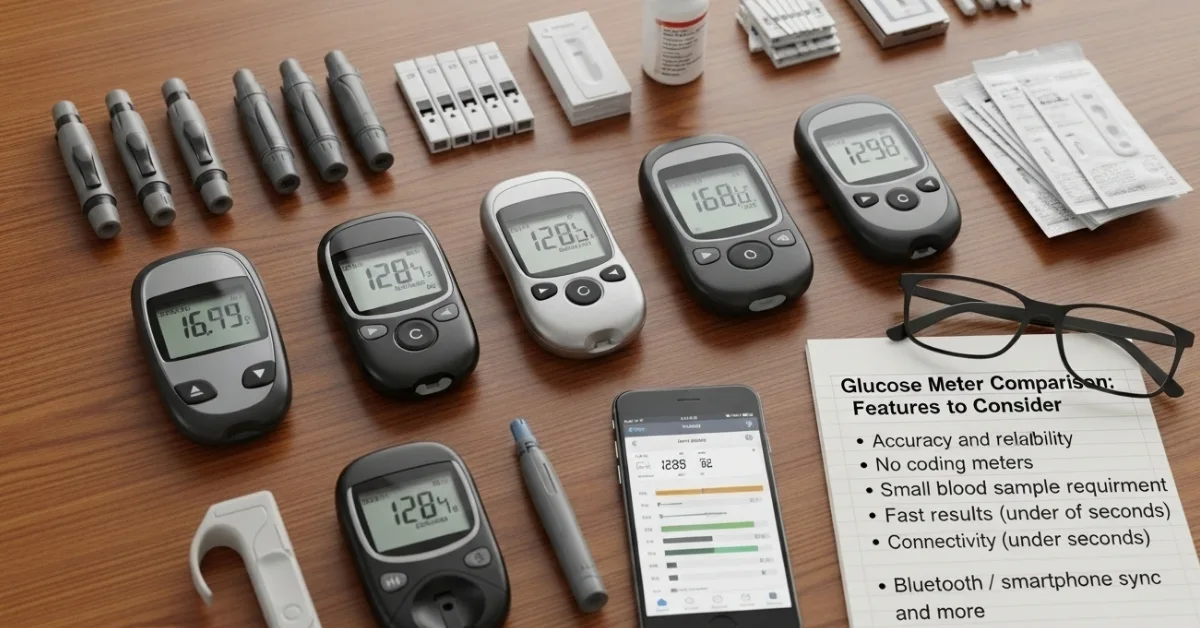
Best Diabetic Glucose Monitor Brands in 2026
In the given, you will see the comparison of BGM and CGM based on pricking technology, affordability and user experiences.
Best BGM Devices: Traditional BG (Need Pricking)
Accu-Chek Devices
- Accu-Chek Guide has a compact design, accurate results, and Accu-Chek Guide Test Strips (50ct, 100ct) for reliable testing. Available at CGM Monitors.
- Accu-Chek Aviva Plus has proven accuracy, easy handling.
- Accu-Chek Softclix Lancets (100 pack) have minimal pain technology.
Contour Devices
- Contour Next One: One of the most accurate FDA-cleared meters, requiring very small blood samples.
- Contour Next Gen & Contour Next Link: Advanced versions compatible with insulin pumps.
- Contour Next Test Strips (300 count, 50 ct, 25 ct): Sold in multiple pack sizes at CGM Monitors.
- Contour Control Solution (Low): Available at CGM Monitors for quality checks.
FreeStyle Devices
- FreeStyle Lite BGM System: Portable, accurate, no coding required.
- FreeStyle Freedom Lite: Larger screen, sensor-friendly.
- FreeStyle Lite Test Strips (100ct, 50ct): Accurate, affordable, widely used.
- FreeStyle Lancets (100 pack): Easy and safe blood sampling.
Other Options
- True Metrix: Budget-friendly choice.
- ReliOn Prime: Lowest strip cost but only sold in select stores, limited coverage.
- Prodigy Voice: Designed for seniors and the visually impaired, with full voice assistance.
These may help uninsured or special-needs patients, but for most users, devices from Accu-Chek, OneTouch, Contour, and FreeStyle at CGM Monitors remain the top choice.
Best CGM Devices for 2026: Advanced Glucose Monitor
In CGM, you do not have to worry about pricking your finger for a blood drop anymore. CGM devices are operating automatically, delivering your blood glucose measure in very few minutes. There are lots of options in Cgm devices, but we only declare those on the basis of the user experiences.
Dexcom CGM Sensors
Dexcom has launched three dexcom sensor one is: Dexcom G6, which has 10 days of weartime and second are Dexcom standard G7 and New Dexcom G7. Standard Dexcom G7 has only 10 days of weartime, like the old models of Libre sensors. On the other hand, the newly launched Dexcom G7 (Adult only) has approximately 15.5 days of weartime.
Libre CGM Sensors
Abbott has launched four sensors by 2025, but now you have only two options in it. One Libre Libre 2 Plus and the other is Libre 3 Plus, and both sensors has same weartime. Both sensors are favourites among the diabetes community. You can buy on CGM Monitors with insurance claims.
Insurance and Cost Considerations
- Medicare Part B typically covers glucometers, test strips, and lancets for patients with diabetes.
- Most private insurance plans also provide partial coverage for blood glucose monitoring devices.
- Uninsured patients often choose budget meters like True Metrix, though coverage is limited.
- NHS (UK) provides meters or Libre sensors for eligible patients under the NICE criteria.
Comparison Table for Choosing the Best Glucose Meter
| Brand / Device | Accuracy | Key Features | Cost of Strips | Best For |
| Accu-Chek Guide | High | Compact, reliable | Medium | Daily users |
| OneTouch Verio Flex | High | Bluetooth, app sync | Medium-High | Tech-savvy |
| Contour Next One | Very High | FDA-cleared, small sample | Medium | Accuracy-focused |
| FreeStyle Lite | High | Small sample, fast | Medium | General use |
| ReliOn Prime | Good | Low cost, basic | Very Low | Budget-friendly |
| Prodigy Voice | Fair | Voice-assist, large display | Medium | Seniors / visually impaired |
Final Verdict: Which Continuous Glucose Monitor is Best
We study the forums and write based on users’ experiences. People are divided for finding the best glucose monitors; some are endorsing Libre sensors, while others are calling Dexcom sensors the best. If we move towards the final verdict, as a trusted retailer of CGM in the USA, our diabetic community are endorsing our new 15-day Dexcom sensor because they need only 2 for a full month, just like the Libre 3 Plus sensor. Moreover mostly clinics trusted its data and endorsed its quick connectivity within a few minutes.
Conclusion
The best diabetes blood glucose meters depend on your unique needs. If cost is your priority, ReliOn Prime or True Metrix are among the best. If you want accuracy and connectivity, Contour Next One or Accu-Chek Guide are excellent choices. Seniors may prefer Prodigy Voice, while tech users benefit from Bluetooth-enabled devices like OneTouch Verio Flex.
For trusted products, visit CGM Monitors, your source for Accu-Chek, FreeStyle, Contour, and OneTouch blood glucose monitoring devices, test strips, and lancets.
Frequently Asked Questions
Which brand are the most accurate blood glucose meter?
Contour Next, Accu-Chek Guide, and FreeStyle Lite are among the most accurate, clinically validated, and widely recommended by healthcare providers.
Is 7.8 blood sugar high in the morning?
Yes. Normal fasting blood sugar is 4–7 mmol/L. A result of 7.8 mmol/L suggests poor glucose control and may require treatment adjustment.
What is the best time of day to test my blood sugar?
Most patients test before meals, two hours after meals, and first thing in the morning. These times show the clearest trends.
Can you get a glucose monitor on the NHS for type 2?
Yes, but only for eligible patients, usually those on insulin therapy. Coverage is based on NICE guidelines.
Are blood sugar monitors accurate without finger pricks?
Non-invasive devices exist but are less reliable. CGMs may still need finger-stick checks for calibration.
What foods can cause high morning blood sugar?
Late-night carbs, desserts, or fried snacks may raise levels. The dawn phenomenon also contributes to morning highs.
Are older glucose sensors being discontinued?
Yes. Some older sensors will be unavailable after September 30, 2025. Patients should transition to updated devices after consulting their provider.
Disclaimer: This blog is for informational purposes only and does not constitute medical, legal, or professional advice. While we strive for accuracy, errors or omissions may occur.
Some images in this blog may be AI-generated or for illustrative purposes only. Device images belong to their respective manufacturers and are used here for reference. Actual products may vary.

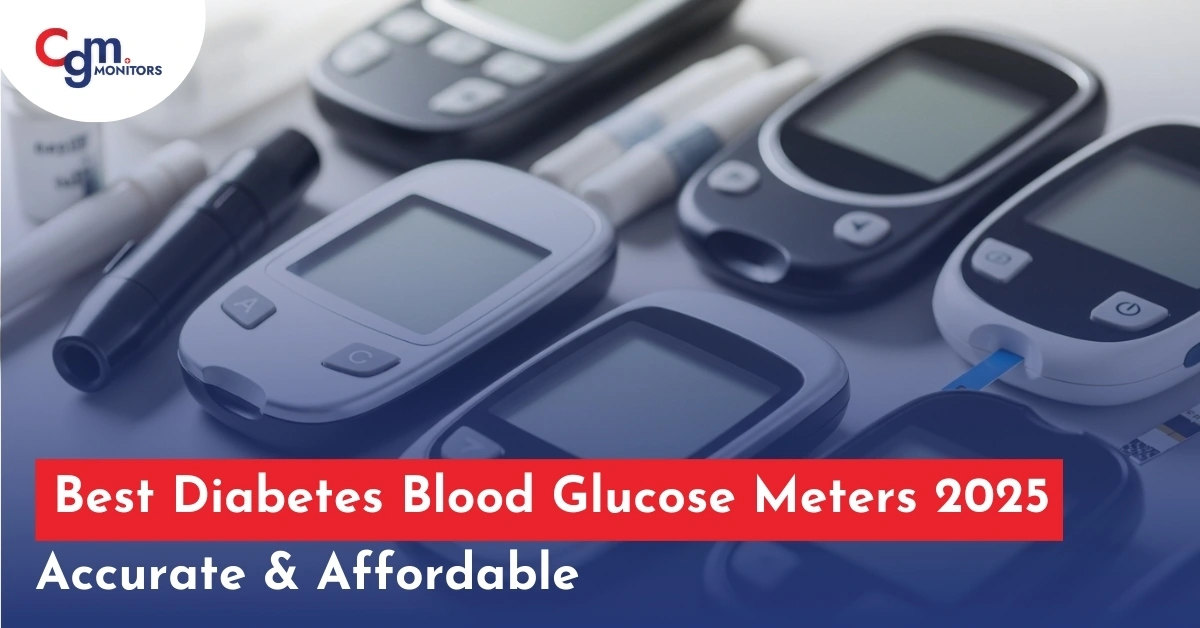
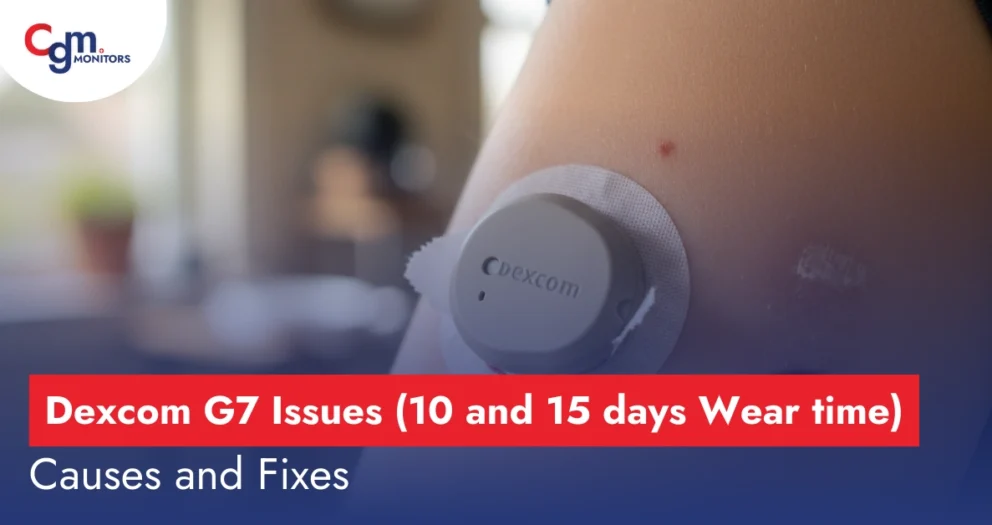

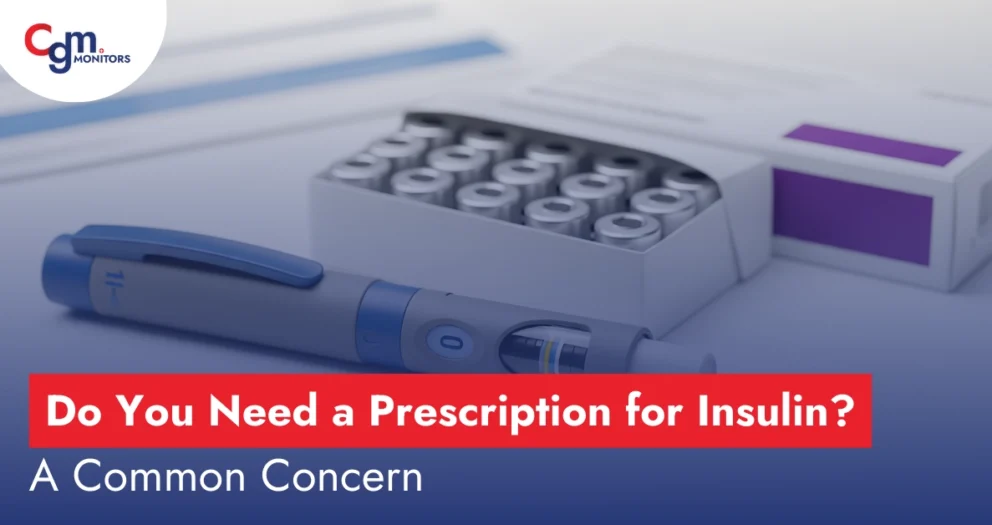
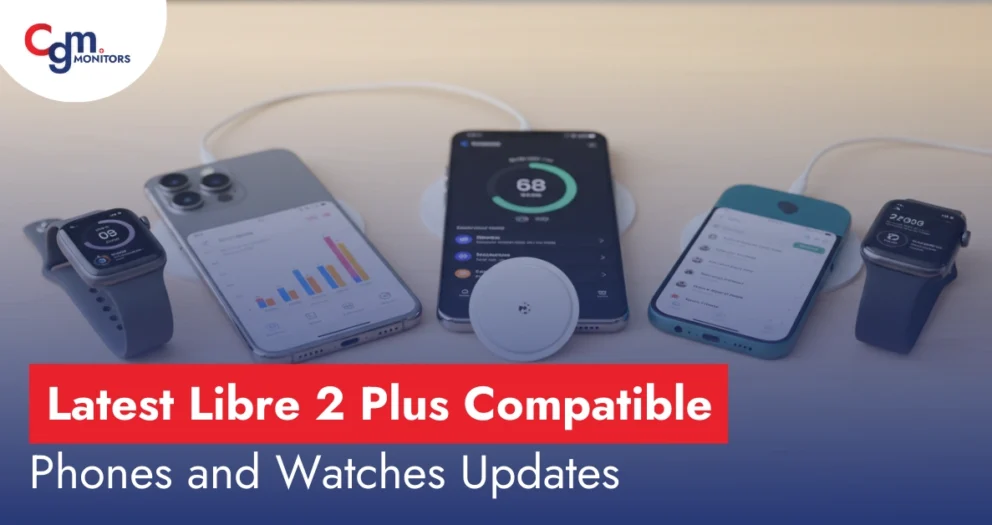

Write a comment
Your email address will not be published. All fields are required